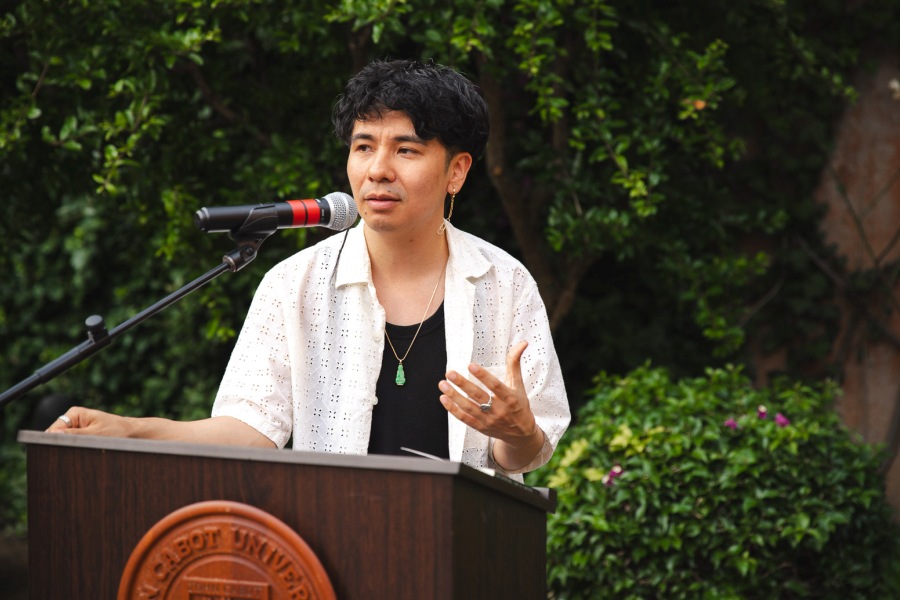Protecting the Vulnerable: JCU Service Learning Welcomes Head of INTERSOS
The JCU Service Learning Program welcomed Giovanni Visone, Director of Communication and Fundraising at the humanitarian organization INTERSOS, for a lecture on social inclusion on February 17. INTERSOS is a humanitarian organization on the frontline of emergencies, bringing assistance to victims of armed conflicts, natural disasters, and extreme exclusion with particular attention to the protection of vulnerable groups. The volunteers take immediate action, providing assistance within 72 hours.

Giovanni Visone
About INTERSOS
The organization is recognized by the Italian Ministry of Foreign Affairs, the European Civil Protection and Humanitarian Aid Operations (ECHO) of the European Commission, the United Nations High Commissioner for Refugees (UNHCR), and other agencies of the United Nations. It also has advisory status at the United Nations Economic and Social Council (ECOSOC). INTERSOS is currently working in 16 countries around the world. The major interventions are now in Yemen, Syria, Greece, Libya, Niger, Burkina Faso, Chad, Democratic Republic of Congo, South Sudan, Somalia, Italy, and Venezuela.
INTERSOS is based on four values: neutrality, humanity, impartiality, and independence. Its humanitarian activity aims at protecting human life and dignity in every context, regardless of gender, race, sex, and political orientation. The principle of neutrality dates back to the nineteenth century, when the Red Cross was founded. The aim was to create a national relief society made up of volunteers trained to relieve suffering in times of war. Moreover, its intervention is independent from external organizations or governments.
INTERSOS operators intervene to effectively meet the necessities of people in critical situations, providing first aid, food, and basic goods. They also ensure that their essential needs such as clean water, health care, and education are met. The operators’ goal is to protect human rights and guarantee access to basic services. As Giovanni Visone explained, “protection is a complex activity” that embraces many different sectors of intervention. These include the organization of emergency shelters in case of war or natural disasters, and taking action in dealing with malnutrition, food security and distribution, and sanitation.
INTERSOS In Italy
The vast movement of refugees towards Italy prompted INTERSOS to create the INTERSOS Migration Unit in 2011, a dedicated thematic unit that coordinates aid projects. It assists migrants by providing psychosocial and legal support, protection and reception.
INTERSOS started two more projects in Italy in 2019: “partecipAzione,” which promotes activities aimed at facilitating the integration of asylum seekers, and “Capitanata,” an outreach service in response to the needs of agricultural workers in exploitative conditions. Lastly, INTERSOS has two multifunctional centers in Rome, providing assistance 24/7: INTERSOS24 and INTERSOSLAB.
During the presentation, Visone referred to the 2020 Global Humanitarian Overview, which estimates that 168 million people will need humanitarian assistance and protection in 2020. Humanitarian organizations aim to assist about 109 million people this year. However, their action will require $28.3 billion. Moreover, as Visone highlighted, the situation can get even worse due to emerging risks, such as climate change, economic vulnerability, and infectious diseases (Ebolavirus, Malaria, and the current Coronavirus). Thus, it becomes significant for humanitarian organizations as INTERSOS to communicate more, in order to raise awareness, support their private fundraising, lobby for donations, and advance human rights.





